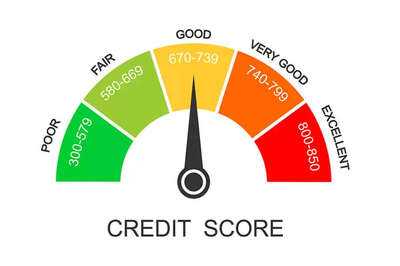Have you ever applied for a loan and been denied by a bank? Or did you get a loan, but the interest rate was so high that it was too heavy for you? The root cause of all these problems is often the same: a poor CIBIL score. While it's not impossible to improve a poor CIBIL score, it's important to understand how much time it takes to improve. Learn more about it here.
Your Financial Report Card: Why is the CIBIL score so important?
Just as a school report card reflects your academic performance, a CIBIL score is a report card of your financial responsibility. Banks and NBFCs rely on this score before granting loans.
Score Range: Status Impact
Above 750: Very good loans are easily available and at a low interest rate.
650–749: Good chances of getting a good loan.
550–649: Average: Banks may hesitate.
Below 550: It's difficult to get a bad loan.
Why does the CIBIL score drop?
A drop in your CIBIL score doesn't happen suddenly. It's a result of your poor financial habits.
Delaying EMIs or credit card bills: The most common and damaging mistake.
High credit utilization ratio: Spending more than 30% of your limit lowers your score.
Repeatedly applying for loans: Every hard inquiry lowers your score.
Loan settlement: Not repaying the full amount reduces your credibility.
Becoming a guarantor: If the primary borrower defaults, your score also drops.
The biggest question: How long does it take to improve a poor CIBIL score?
Improving your CIBIL score isn't an overnight process. It requires patience and consistent effort. A poor CIBIL score can take at least 6 to 12 months to improve. If your score is very poor (e.g., below 550) or you've settled a loan, it may take 18 to 24 months or even more to bring it back to a respectable level (700+).
Actually, credit bureaus (like CIBIL) update your data every month, which they receive from banks and NBFCs. Only when your good habits (like timely EMI payments) are consistently reported for 6-8 months does a positive impact on your score begin to be visible.
Action Plan to Improve Your CIBIL Score
Make Timely Payments
Set up auto-pay or reminders for all EMIs and bills. This will prevent payment delays.
Reduce Credit Card Debt
If the bill is high, convert it to EMIs and settle it sooner.
Check Your Credit Report
Check your free report once every year and report any discrepancies to CIBIL immediately.
Get a Secured Credit Card
Obtain a card against an FD and make timely payments. This will build a positive history.
Make new loan applications carefully.
Repeated applications result in hard inquiries, which can harm your score.
Disclaimer: This content has been sourced and edited from Zee Business. While we have made modifications for clarity and presentation, the original content belongs to its respective authors and website. We do not claim ownership of the content.
You may also like

Hit-&-run case against Punjab judicial officer shifted to Delhi

Rachel Reeves' neighbour breaks silence on scandal with damning verdict

Review Akola order against secular policy: Maha to SC; court had sought riot case SIT with Hindu & Muslim officers

FBI says Kash Patel breaks no rules when he takes agency jets to meet his girlfriend

Los Angeles Dodgers' owner Mark Walter seals $10 billion Lakers takeover reshaping NBA's ownership landscape







